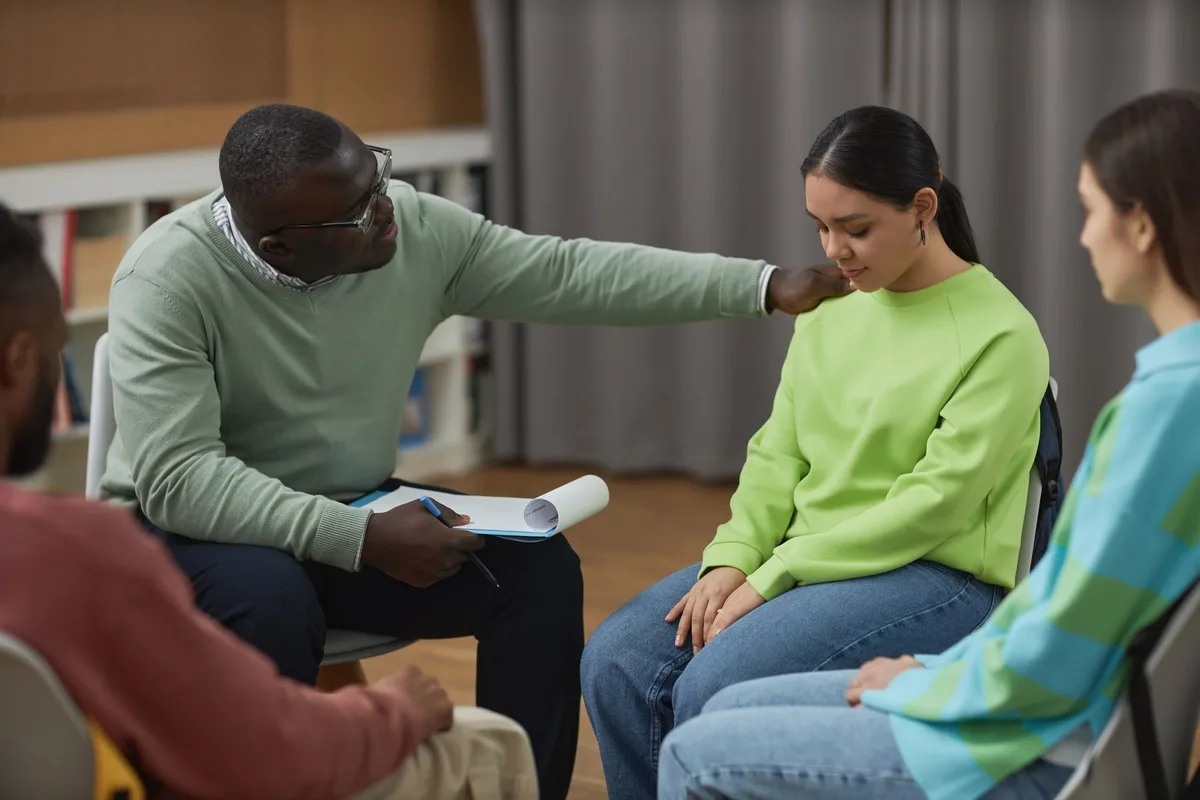24/7 Helpline:
(866) 899-221924/7 Helpline:
(866) 899-2219
Learn more about Group Therapy centers in Concord
Group Therapy in Other Cities

Other Insurance Options

Medical Mutual of Ohio

Humana

State Farm

AllWell

Magellan Health

Multiplan

Aetna

Holman Group

CareFirst

Evernorth

Health Partners

Anthem

American Behavioral

Health Choice

Sutter

Magellan

Meritain

MHNNet Behavioral Health

Highmark

Lucent













